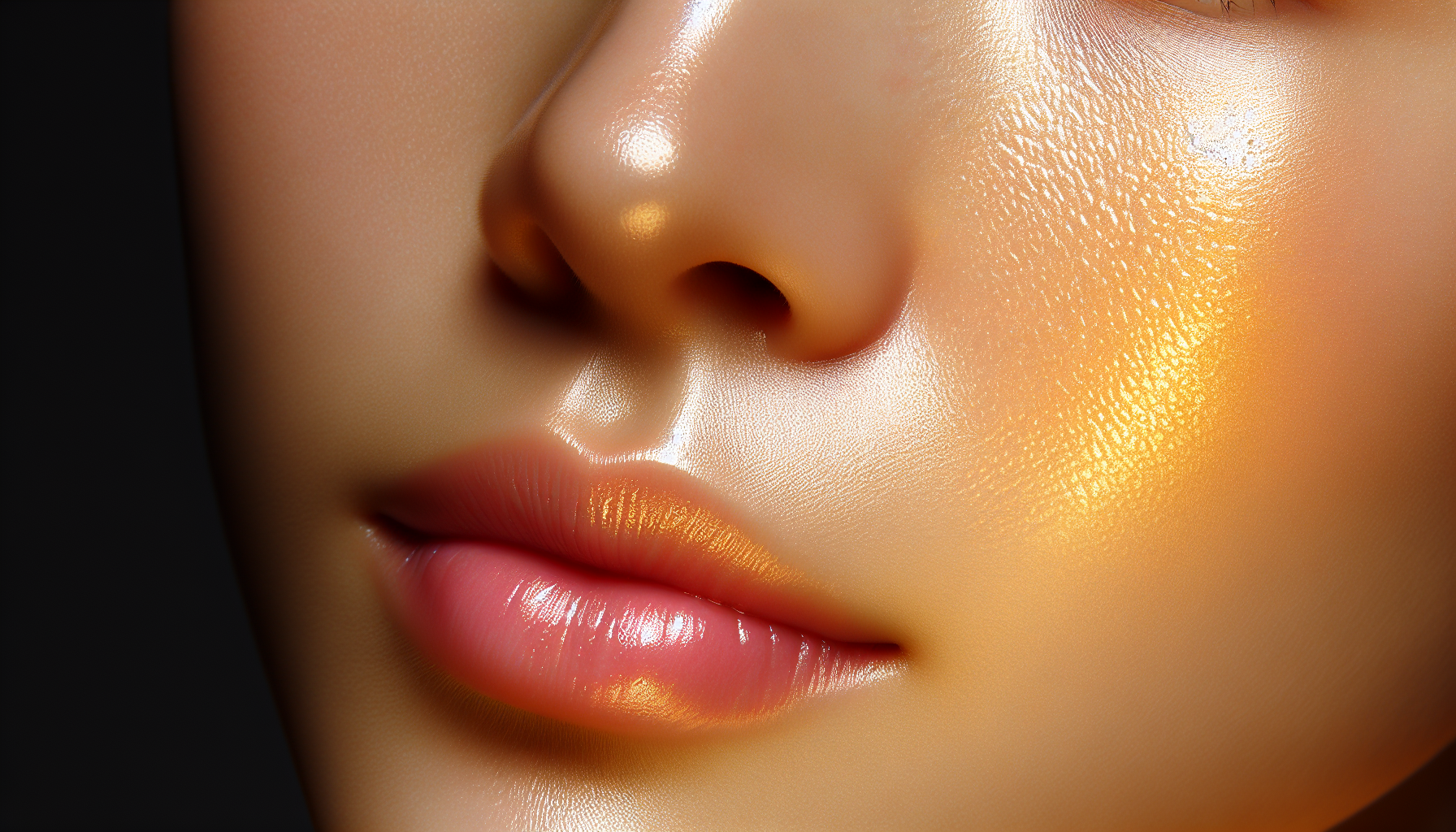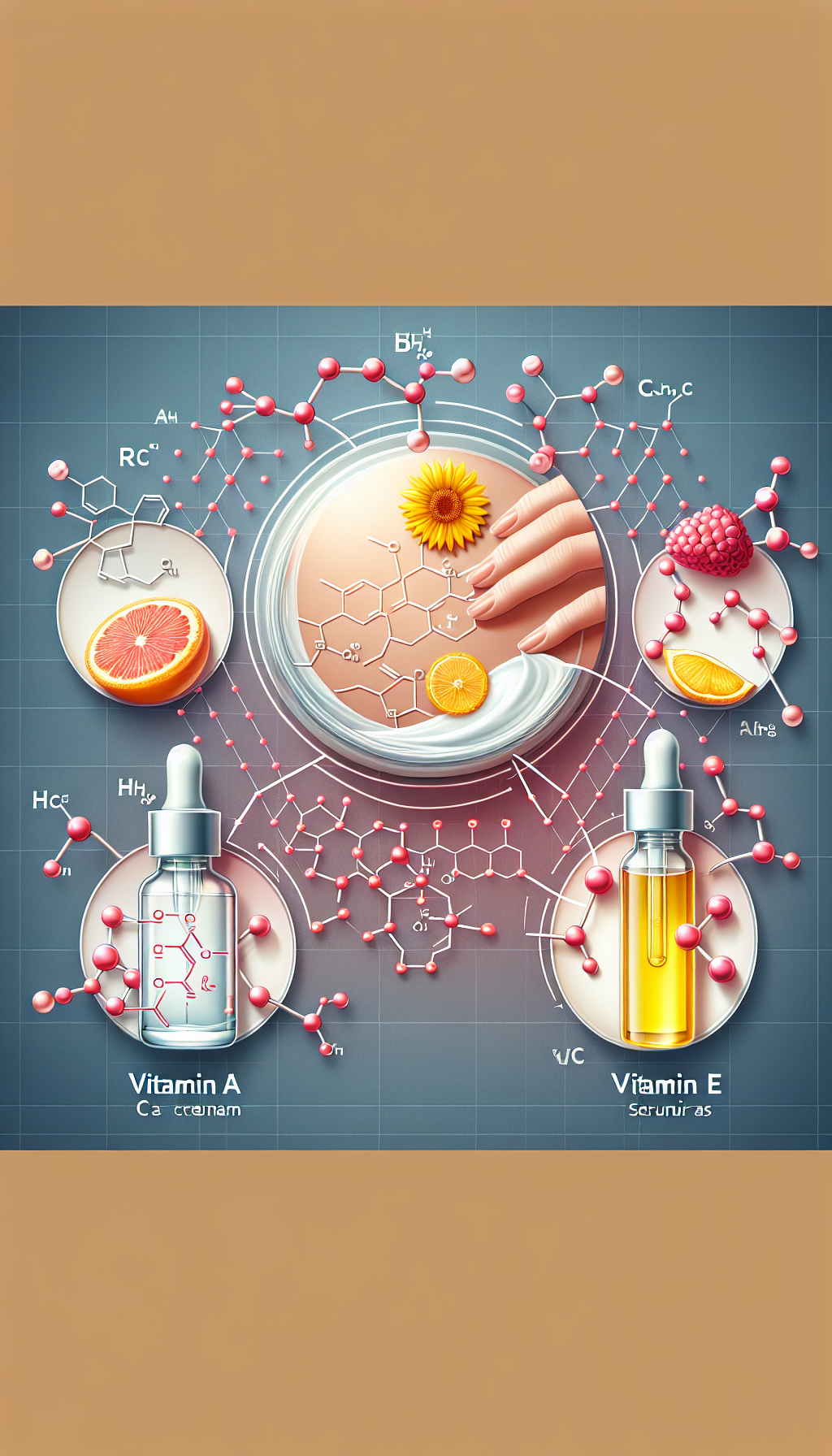Vitamins are essential micronutrients that play a crucial role in maintaining skin health and facilitating its rejuvenation. The skin, being the largest organ of the human body, not only serves as a protective barrier but also reflects the overall well-being of an individual. Thus, incorporating a diet rich in vitamins and using skincare products fortified with these nutrients can significantly improve the skin’s appearance and function.
The Importance of Vitamins for Skin Health
Vitamins are vital for skin health as they contribute to various cellular processes that are essential for maintaining the skin’s structure, function, and appearance.
-
Vitamin A: Retinol, a form of vitamin A, is renowned for its ability to stimulate skin renewal, enhance collagen production, and reduce the appearance of fine lines and wrinkles. It is also effective in treating acne and improving skin tone and texture.
-
Vitamin C: This antioxidant is critical for collagen synthesis, which is integral to skin firmness and elasticity. Vitamin C also helps combat free radical damage, reduces pigmentation, and brightens the skin.
-
Vitamin E: Serving as an antioxidant, Vitamin E protects the skin from oxidative stress induced by UV radiation and other environmental aggressors. It also has anti-inflammatory properties that help soothe and heal the skin.
-
Vitamin D: Often synthesized in the skin in response to sunlight, Vitamin D plays a role in skin cell growth, repair, and metabolism. It can help enhance the skin’s immune system and protect against external contaminants.
-
Vitamin K: This lesser-known vitamin aids in the body’s healing process, helping to reduce dark circles under the eyes and improve skin elasticity.
-
B-Complex Vitamins: The B-vitamins, including B3 (niacin), B5 (pantothenic acid), B6 (pyridoxine), and B7 (biotin), contribute to skin health by reducing dryness, easing eczema, and maintaining skin moisture levels.
Achieving Healthy Skin through Diet and Supplementation
A balanced diet rich in these vitamins can naturally support skin health. Foods such as citrus fruits, leafy greens, nuts, seeds, and fish are excellent sources of skin-loving vitamins. However, when dietary intake is insufficient, supplements can be an effective way to ensure adequate vitamin levels. For more in-depth information on how diet affects skin health over time, consider reading "How Diet Affects Skin Health Over Time".
It’s important to note that while oral supplementation is beneficial, topical application of these vitamins can directly target the skin. Many skincare products contain derivatives of vitamins A, C, and E, which can penetrate the skin’s surface to yield visible results. For a detailed understanding of the benefits of professional skincare treatments, the article "The Benefits of Professional Skin Care Treatments" is an excellent resource.
External Resources Supporting the Efficacy of Vitamins in Skin Care
Professional dermatological research and clinical trials provide robust evidence supporting the role of vitamins in skin care. The following resources offer valuable insights:
- The American Academy of Dermatology provides guidance on skin care basics and the role of vitamins in maintaining healthy skin.
- Research published in the Journal of Clinical and Aesthetic Dermatology can be explored for scientific articles on the efficacy of vitamins in dermatological treatments.
- DermNet NZ offers comprehensive information on how nutrition, including vitamins, impacts skin health.
Topical Vitamin Treatments
In addition to dietary intake, topical application of vitamins has gained popularity due to their direct benefits on the skin. Retinoids, a derivative of Vitamin A, are a staple in anti-aging regimens due to their proven ability to reduce signs of aging. Vitamin C serums are sought after for their brightening effects and ability to diminish dark spots. For those interested in anti-aging strategies, the insights provided in "The Importance of Antioxidant Serums in Anti-Aging Regimens" may be particularly enlightening.
Precautions and Recommendations
While vitamins are essential for skin health, it’s crucial to approach their use with caution. Excessive intake of fat-soluble vitamins, such as A and E, can lead to toxicity. Moreover, high concentrations of certain vitamins in topical treatments can irritate sensitive skin. Therefore, it’s always recommended to consult with a healthcare professional before starting any new supplement or skincare regimen.
Linking Vitamin Use to Broader Skin Health
The use of vitamins for skin health should be part of a broader skin care and wellness routine. Regular check-ups with a dermatologist, using sunscreen, and maintaining a healthy lifestyle are all essential components of skin health. For an overarching perspective on skin health practices, "Skin Health Awareness and the Importance of Regular Check-Ups" offers valuable advice.
In conclusion, vitamins are indispensable allies in the quest for radiant, youthful skin. Through a combination of a nutrient-rich diet, prudent supplementation, and targeted topical treatments, one can harness the power of vitamins to enhance skin health and rejuvenation significantly. As we continue to understand the complex relationship between nutrients and skin, the potential for new and innovative skincare solutions seems limitless, promising a future where healthy, glowing skin is accessible to all.



